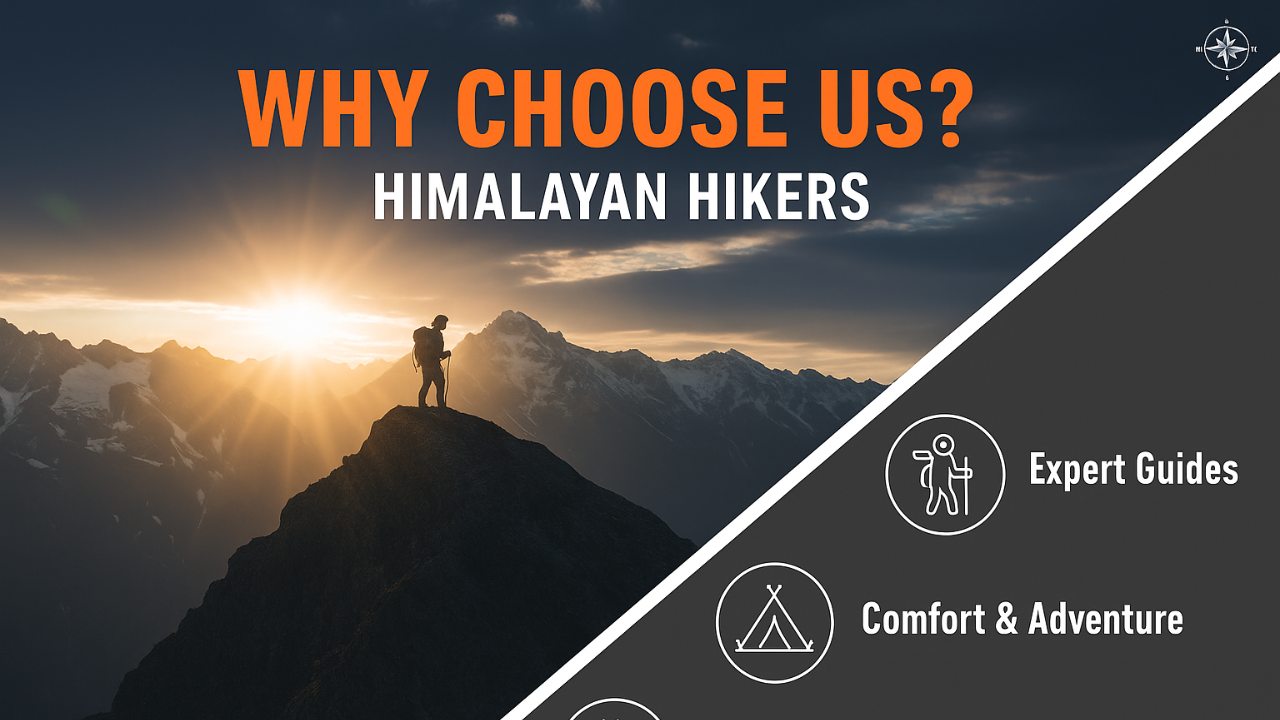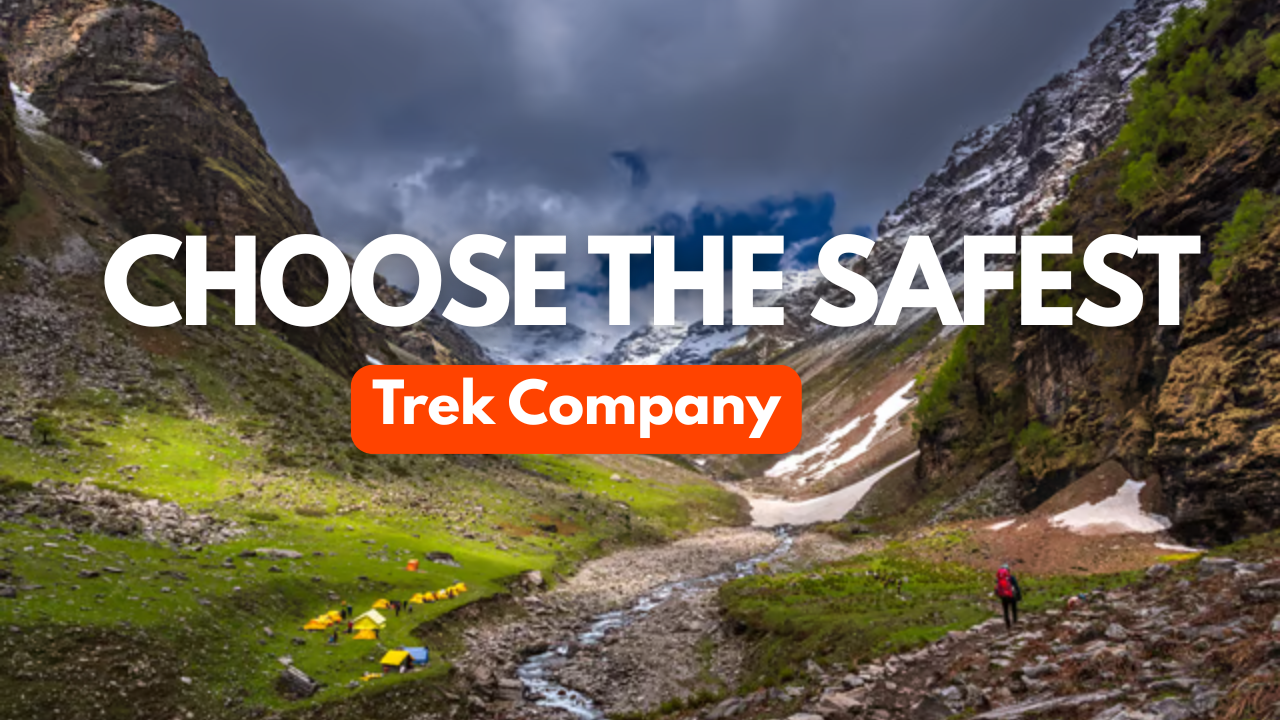The trail to reach Darati Pass is exhilarating and on other side of this pass are no campsites. The amusing destinations you are going to cover on this route are –
Chamba, Chanju, Khalpra, Alyas base and Tindi village.
Chamba is the basecamp of Darati Pass trek.
Highlights of Darati Pass trek
Darati Pass is a gateway to Pangi valley of Himachal.
Darati Pass connects the Churah valley of Chamba district to the Tindi valley of Spiti and Lahaul districts at an altitude of 4700 meters.
Explore the last village of Lahaul district “Tindi”.
Visit Trilokinath temple at Udaipur.
Key Points of Darati Pass Trek
Level:Difficult
Proper conditioning & training of body required
Need proper gear & clothing for sub-zero temperature?
Shoes are the single most important equipment.
High Altitude requires proper acclimatization.
Beautiful landscapes so carry good photo gear & Extra battery backup.
Travel light
The backpack should not exceed 10kgs.
Must Read about Darati Pass Trek
Duration:8 days (Pathankot to Manali)
Best Time:July end – Early Sep
Level:Difficult
Highest Point:4700 m
Weather:Nights are cold and day temperature is pleasant during the season.
Temperature:(12°C to 20°C) (-2°C to 6°C)
Starting Point: Pathankot
Darati Pass Trek Complete Guide
Our mission has always been to ensure that no trekker steps into the Himalayas without the right perspective. A trek is not just a checklist of summits; it is a serious commitment to the outdoors. Having the right information is what separates a reckless climb from a soulful journey.
This section serves as your definitive manual for the Darati Pass Trek. We have distilled years of mountain experience and real-time feedback into this guide to give you a clear, honest picture of the trail.
We provide this depth of information because we want you to be more than just a visitor—we want you to be a prepared, responsible trekker who respects the mountains as much as we do
Day1 – Pathankot to Dalhousie (80 km)
Day2 – Dalhousie – Kalatop – Khajiyar – Chamba (55 km)
Day3 – Chamba to Chanju Charda (75 km)
Day4 – Chanju Charda to Kalpra (7 km)
Day5 – Khalpra to Alyas Base Camp (6 km)
Day6 – Alyas Base Camp to Darati Pass and Tindi (18 km)
Day7 – Tindi to Trilokinath and drive to Udaipur (105 km)
Day8 – Udaipur to Manali via Keylong
Day 1: Pathankot to Dalhousie (80 km)
The transport will be arranged from Pathankot and the drive will be to Dalhousie, a beautiful hill station in Chamba region.
Day 2 : Dalhousie – Kalatop – Khajiyar – Chamba (55 km)
Post breakfast head to Kalatop Wildlife Sanctuary, explore the area and move further to Khajiyar. Post lunch reach Chamba, arrangements will be made in a hotel there.
Visit Bhri Singh Museum and visit Laxmi Narayan Mandir. Get back to
Move to a small village named Chanju it lies in Churah block of Chamba.
Day 3 : Chamba to Chanju Charda (75 km)
Move to a small village named Chanju it lies 70 km away in Churah block of Chamba.
Setup your camps there, in the evening visit the village, get back and settle for the day.
Day 4 : Chanju Charda to Kalpra (7 km)
Start the trek early in the morning and head to Kalpra. Go through the thrilling trail and cross steep ascents. Reaching Kalpra will take approximately 5 hours.
Reach there and settle for the day.
Day 5 : Kalpra to Alyas Base Camp (6 km)
Have breakfast and gradually climb to Alyas. Alyas are locally called Lahesh, they are the base ground of passes or the campsites present on both sides of the passes.
Go through boulder areas and Himalayan pasturelands. As the altitude is gained the surrounding peaks looks magnificent. Reach there in 5 to 6 hours and retire for the night.
Day 6 : Alyas Base Camp to Darati Pass and Tindi (18 km)
From Alyas Base Camp to Darati pass is a tough incline, get yourself prepared early. Start the climb around 4:00 am because walking on frozen snow is easier then walking on fresh snow. We have to reach the pass early because weather conditions can change anytime.
The ascent is going to be tough but equally rewards with the great Himalayan views. There is a sudden gain in altitude, rough terrain and vertical climbs which adds adventure for the seekers. At Darati Pass top is a temple and the panorama views are extremely surpassing.
Now, start the downhill trek to reach Tindi village. Setup your camps here and retire for the night.
Day 7: Tindi to Trilokinath and drive to Udaipur (105 km)
After a thrilling trek to Darati Pass,visit this famous Trilokinath and enjoy your journey to Udaipur.
Day 8 : Udaipur to Manali via Keylong
Visit the Mirkla Mata temple in Udaipur, go to Keylong, Dist. Headquarter of Lahaul. From here move to Manali via Rohtang Pass.

Necessary Items for trekkers
Mandatory Documents
Original and photocopy of government photo identity card- (Aadhar Card, Driving License, Voters ID, etc,)
Passport and Visa important to foreigners
Medical Certificate (First part should be filled by the Doctor and Second part by the Trekker)
Declaration Certificates
Note: – Many trekkers commit the same mistake of carrying unnecessary items on a trek which only makes the backpack heavy. It is important to know the right items to carry. It differs from season to season if you are trekking in summers then carry less layers of warm clothing and if you are trekking in winters carry enough layers to protect yourself against chilly cold.
Basic Trekking Gears

The Clothes You Should Bring On Satopanth Expedition

Head Gears

Foot Gears

Personal Care Essentials

Carry a Personal Medical Kit

Are you Looking for Trekking Equipment on Rent?
If any trekker requires trekking equipment on rent, Himalayan Hikers offers the best-quality gear available for rental. Many individuals are in need of such equipment, and renting provides a cost-effective solution, allowing them to access high-quality gear at an affordable price without the need for a significant investment for short-term use.

Trek Equipment You can book directly on first day at the Base Camp.
Note:-
Please take all medicines only when prescribed by the doctor. In case you face any problem during your trek,
discuss and take advice from the Professional guide.
The Trek is one of the most popular treks in Uttarakhand, Himachal,Kashmir,Laddakh,Sikkim,Nepal, requiring both physical preparation and mental readiness. Although it is categorized as a moderate trek, reaches an elevation of over 12,720 feet and traverses remote Himalayan terrain, which can be physically and mentally challenging. Here's how you can prepare yourself for a safe and successful accomplishment of the Trek:
Physical Fitness
Building a good fitness base is essential for every trekker. The Trek itinerary involves 5 to 6 hours of walking every day. Though the trails are well-marked, they are often bumpy and include steep uphill sections, which may affect your stamina. You can overcome your physical limitation with a 6-week training program that you can begin about 2 months before your Trek. Your 6-week fitness routine should include

Pro Tip: If you have time, you can skip the Sunday training and go for a long-distance walk or mini day-hike (7–10 km) with a loaded backpack to simulate real trekking conditions. A short 1-day hike around your city/town can help a lot.
Mental Preparation
Physical strength is only half the journey, the other half is mental resilience. The trail takes you through remote clearings, steep climbs, cold starry nights, and no mobile connectivity. Be prepared to:
(I) - Detach from the digital world.
(II) - Embrace basic mountain living (camping, toilet tents, limited electricity).
(III) - Push through moments of fatigue, weather discomfort, or altitude effects.
A positive mindset, patience, and the ability to adapt will carry you farther than muscle ever could.Himalayan Hikers is a reputable trekking company that places a high priority on safety. Here are some of the safety measures they take to ensure the safety of their clients during the Trek:
Experienced Guides: Himalayan Hikers hires experienced and certified guides who are well-versed in the terrain, weather conditions, and local culture. These guides have first-hand knowledge of the routes and are equipped to handle any emergency situations that may arise.
Proper Gear: The company provides all the necessary gear and equipment to their clients to ensure comfort and safety during the trek.
Hygiene and Sanitation: Himalayan Hikers places great emphasis on hygiene and sanitation during the Trek. They provide clean drinking water, hand sanitizers, and toilet tents to ensure that their clients are healthy and comfortable.
Emergency Services: The company has a well-defined protocol for handling emergency situations. They have a team of trained medical professionals who are available 24/7 and can be quickly mobilized in case of an emergency.
Acclimatization: Himalayan Hikers follows a gradual acclimatization process during treks to ensure that their clients adjust to the high altitude gradually. They also monitor the health of their clients regularly and provide necessary medical attention if required.
Overall, Himalayan Hikers places a great emphasis on safety and takes all necessary measures to ensure the safety and well-being of their clients during treks.
No inclusions found.
No exclusions found.
Important Note
No important note.
Map not available for this trek.
No FAQs available for this trek.


 Announcement: Fixed departure groups for
Announcement: Fixed departure groups for 














